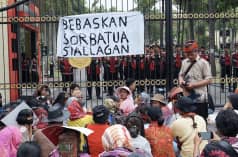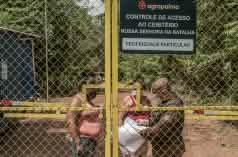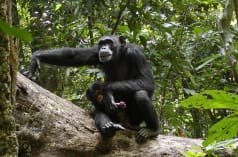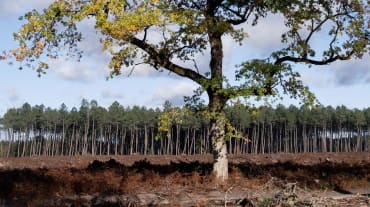Brazil: Deception and abuse with carbon offsetting projects in the Amazon rainforest
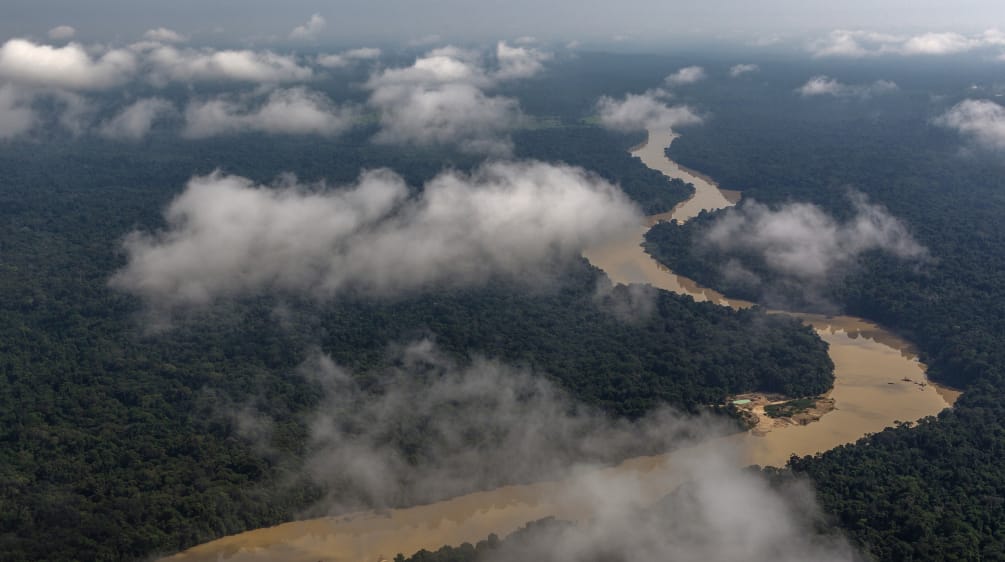 Amazon rainforest in the state of Pará (© Felipe Werneck/Ibama/CC BY-SA2.0)
Amazon rainforest in the state of Pará (© Felipe Werneck/Ibama/CC BY-SA2.0)
Oct 19, 2023
In Portel in the Amazon region, carbon traders have apparently illegally sold credits for rainforest areas that are state property and inhabited by local communities. The operators allegedly failed to carry out effective studies in the forest areas, deceived the local people and “compensated” them with worthless gifts.
The public defense authority of the Brazilian state of Pará (Defensoria Pública do Estado do Pará) has filed five lawsuits against the prefecture of Portel and several Brazilian and foreign companies operating carbon offset projects in the Portel rainforest, demanding that they be canceled. The authority wants to prevent illegal projects carried out without the approval of the state of Pará that violate the rights of communities.
The cases were uncovered last year by the Uruguay-based World Rainforest Movement (WRM). The environmental and human rights organization described the activities as “carbon colonialism” and highlighted numerous irregularities and questionable practices.
The Brazilian media group O Globo has now released a detailed investigation and a 16-minute video report on the deals that have seen operators earn millions through the sale of carbon credits. The RMDLT, Pacajaí and Rio Anapu-Pacajá projects are located in the municipality of Portel, around 250 kilometers west of Belém in the Amazon rainforest, covering a total forest area of 4,519 square kilometers – roughly three times the area of Greater London. These purported climate and forest protection projects – so-called REDD projects – have a planned duration of up to 40 years.
Carbon projects violate territorial law
According to the public defense authority, the areas occupied by the private-sector carbon projects overlap with state forest areas – i.e. public land – for which the local authorities in the state of Pará have not issued permits. According to the authority, those responsible for the carbon projects are violating territorial law and disregarding the local people’s right to free, prior and informed consent.
Around 1,500 families live along the rivers in the area. The companies had entered the settlements in the rainforest without state authorization, without prior studies and without monitoring by the authorities, had carried out inspections and forest inventories and registered the families. According to O Globo, the operators of the carbon projects apparently also used land titles in the rainforest that were declared invalid and anulled many years ago.
Projects do not provide effective rainforest and climate protection
“These are projects on paper that in practice do not offer any effective environmental protection in the affected forest areas in the Amazon region,” says the agricultural defense lawyer Andreia Barreto, who wrote the complaints, as quoted by O Globo: “The companies that bought these offset credits would not have effectively offset the emissions they caused.”
The buyers of the carbon credits in question include international corporations such as the airlines Air France and Delta, the pasta manufacturer Barilla, the chemicals and pharmaceuticals group Bayer, the aircraft manufacturer Boeing, the electronics manufacturers Kingston, Samsung and Toshiba, the electrical equipment manufacturer Siemens Energy and the British soccer club Liverpool.
The companies appear to have acquired the certificates legally on the carbon market. However, they apparently did not carry out any checks and relied on the carbon traders and certifiers involved. Carbon credits offer buyers a convenient, quick and inexpensive solution: Instead of effectively reducing their environmentally harmful emissions to zero, they can offset them against the credits and thus present themselves as climate-friendly.
The three projects are certified under the Verified Carbon Standard (VCS) seal of the US organization Verra, the world leader in the private carbon credit business. Verra told O Globo that it has registered the projects and that it is cooperating with the public defense authority. However, Verra denies any responsibility, as the registered projects are checked and validated by third parties. The audits are usually commissioned by the project operators themselves.
Local people were deceived and left empty-handed
“Although the carbon market is private, the object of negotiation is a public good, because the forest is a public good according to the constitution,” explains Ione Nakamura, head of the legal department and coordinator of the land conflicts department of the public prosecutor’s office of the state of Pará, to O Globo.
“The impression arises that the companies are pocketing the profits while putting the responsibility for preserving the forest on the state and the communities. The latter received little in return because the projects were not negotiated effectively: The municipalities had not received the technical and legal advice they needed to review these projects and negotiate with the companies on an equal footing.”
The inhabitants of the settlements complain that they have not received a cent from the sale of the carbon credits generated by the projects. Instead, they were given food baskets, t-shirts and wood-fired tin stoves, which they said were useless. They were also deceived with documents from the environmental register, which were presented to them as if they were land ownership documents, which is not the case.
In the lawsuits, the public defense authority is calling for guarantees of the territorial rights of the communities in the five settlements on public land and that the projects with the carbon credits and all related transactions be declared invalid. Furthermore, the people responsible for the projects must be prevented from entering the settlements, and moral compensation for collective damages amounting to BRL 5 million must be granted to those affected in a court case.
Verra has released statements on the three project pages noting that the organization has set a deadline for new validations and reviews. During this process, the issuing of new carbon credits by the projects is suspended.
public defense authority of the Brazilian state of ParáDefensoria Pública do Estado do Pará, 31.07.2023. Defensoria do Pará ajuíza cinco ações para suspender construção de projetos de crédito de carbono em Portel https://defensoria.pa.def.br/noticia.aspx?NOT_ID=5969
“carbon colonialism”WRM 2022. Neocolonialism in the Amazon: REDD Projects in Portel, Brazil: https://www.wrm.org.uy/publications/neocolonialism-in-the-amazon-redd-projects-in-portel-brazil
O Globo, 2.10.2023. Fraude na Amazônia: empresas usam terras públicas como se fossem particulares para vender créditos de carbono a gigantes multinacionais: https://g1.globo.com/pa/para/noticia/2023/10/02/fraude-na-amazonia-empresas-usam-terras-publicas-como-se-fossem-particulares-para-vender-creditos-de-carbono-a-gigantes-multinacionais.ghtml
O Globo, 2.10.2023. Defensoria do Pará aponta irregularidades em projetos de créditos de carbono na Amazônia: https://g1.globo.com/pa/para/video/defensoria-do-para-aponta-irregularidades-em-projetos-de-creditos-de-carbono-na-amazonia-11988936.ghtml
REDD projectsREDD stands for “Reducing Emissions from Deforestation and Forest Degradation”. This concept, which is highly controversial for many reasons, is intended to finance the protection of forests as carbon sinks.
- Verra 2023. IO ANAPU-PACAJA REDD PROJECT: https://registry.verra.org/app/projectDetail/VCS/2252; Verra, 8.9.2023. Project ID 2252: Review notification: https://registry.verra.org/mymodule/ProjectDoc/Project_ViewFile.asp?FileID=96926&IDKEY=n8723kjnf7kjandsaslmdv09887vaksmrmnwqkjoiuanfnfuq03133660954
- Verra 2023. PACAJAI REDD+ PROJECT: https://registry.verra.org/app/projectDetail/VCS/981; Verra, 8.9.2023.Project ID 981: Review notification: https://registry.verra.org/mymodule/ProjectDoc/Project_ViewFile.asp?FileID=96925&IDKEY=Dq934lkmsad39asjdkfj90qlkalsdkngaf98ulkandDfdvDdfh3
- Verra 2023. RMDLT PORTEL - PARA REDD PROJECT: https://registry.verra.org/app/projectDetail/VCS/977; Verra 8.9.2023. Project ID 977: Review Notification:
https://registry.verra.org/mymodule/ProjectDoc/Project_ViewFile.asp?FileID=96924&IDKEY=l0e98hfalksuf098fnsdalfkjfoijmn4309JLKJFjlaksjfla9e133658196
